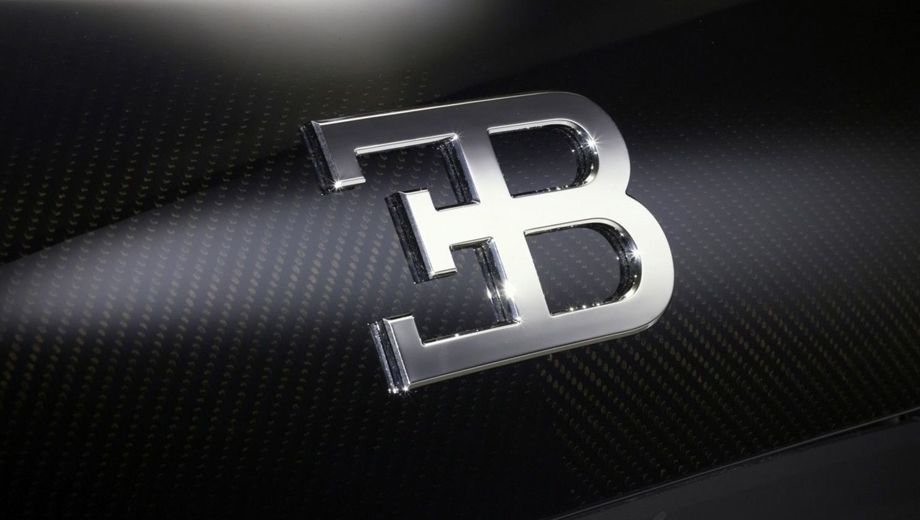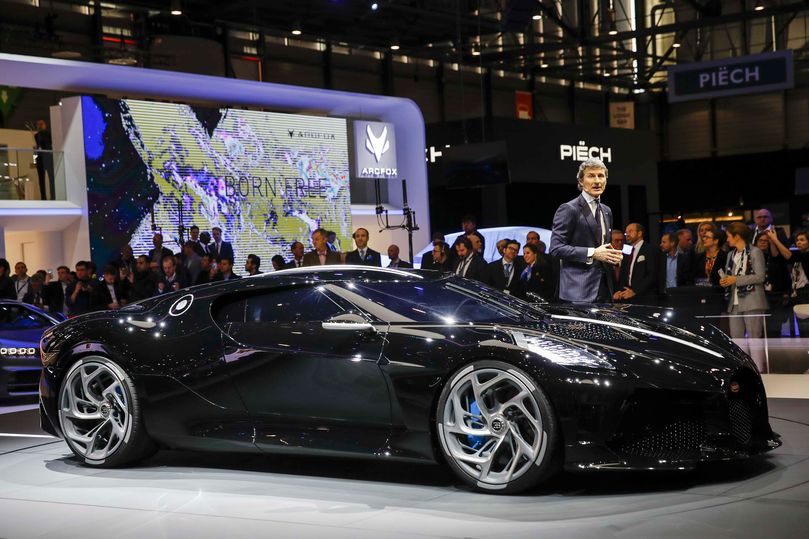Coming next: an affordable electric Bugatti you can drive every day?

Bugatti is known for building dazzling supercars which are also super-expensive, but now the marque has its eye on a car that's well, less super and more of an everyday driver.
It was a curious and even jarring juxtaposition against Bugatti's unveiling of the world’s most expensive new car at last week's Geneva Motor Show: the €16.7 million La Voiture Noire (French for "the black car", below), a one-off coupe made as a modern interpretation of the iconic Bugatti Type 57SC Atlantic and speculated to have been created on commission for Ferdinand Piech, chairman of Volkswagen Group from 1993 to 2002.
Yet according to Bugatti President Stephan Winkelmann, the brand is looking to introduce a second, more affordable model of car to its current multimillion-dollar lineup.
Winkelmann characterized it not as a mere halo car but as a best-in-segment daily driver with a top-line price to match – and it would be at least partially electric.
“I would see us doing a battery electric vehicle,” he said of the proposed new car. “There, the balance between performance and comfort is much more important, and it’s about daily usability. This is what I see.”
Face-melting speed “will be far less important” in the second car, he said, although it stands to reason that even a far “lesser” creation could cost a half-million dollars and pack quite a punch.
Winkelmann declined to give additional specifics about the cost, chassis, and performance of the potential car but said the company has already begun analyzing the prospect. “Let’s see what we can do,” he said. “I’m hoping for the best.”
There is room to expand, even with the generous business that million-dollar cars such as the Bugatti Chiron and Divo already provide.
Matt DeLorenzo, senior managing editor for Kelley Blue Book, characterizes the move to bring in a second model lineup as smart, matching the VW Group’s overall push toward electrification. “They do need to remain relevant within the group,” he says.
“At the end of the day, the difference of the price in a car is the brand,” Winkelmann said of how the new model may be positioned. “And this, I think, will stay the same – fortunately for us. I’m convinced about this.”
Tim Urquhart, the principal automotive analyst at IHS Markit, casts doubt as to whether the new model will be hugely profitable, despite strategy shifts from new VW Chief Executive Officer Herbert Diess.
Instead, “relevancy is the more important question,” he says, especially when the brand story matters as much as the product—and when hybrid and purely electric vehicles have utterly dominated automotive news for the past few years.
Audi, BMW, Mercedes, Jaguar, and Porsche have all announced electric cars, to be produced now or in the near future. Tesla’s electric vehicles continue to move from strength to strength, against all odds.
Cities such as London and Paris are becoming increasingly hostile to combustion-driven engines. And the technology needed to get a two-ton Chiron to sustained performance and extended range under battery power alone isn’t feasible, due to weight and cost constraints.
In short, an electric Chiron would be a compromised Chiron, Winkelmann says. That’s why, in order to introduce electric technology into Bugatti, it must come in the form of a new car altogether. “I would see [electric power] there because I don’t need a top speed, which is over 250 mph,” he said.
Bugatti would hardly be the first classic brand to attempt to evolve and achieve relevance via electric and/or half-practical vehicles.
Ferrari and Lamborghini long eschewed deigning to make less-expensive sports cars and (gasp) SUVs in volumes that would bolster their tiny global outputs (formerly sub-5,000 units).
More recently, Lamborghini incorporated the Urus SUV into its lineup, and Ferrari executives said last week in Geneva that they are working on a hybrid supercar of their own. (Ferrari introduced the hybrid LaFerrari six years ago.) These moves had no discernible negative impact, in terms of “damaging” a storied brand.
The true challenge will be to develop an electric vehicle with either significantly improved range or more exotic technology than the much-hyped Porsche Taycan, another sibling in the VW Group family and one that will be on the road before the end of 2019.
Any new vehicle from Bugatti would likely borrow extensively from VW Group hardware such as the Premium Platform Electric architecture to be used by Porsche, Bentley, and Audi. But with a badge like Bugatti’s, it had better provide an amplified experience.
“Whatever the technology of the day is, Bugatti would be expected to take it up a notch,” Kelley Blue Book’s Delorenzo said.


Hi Guest, join in the discussion on Coming next: an affordable electric Bugatti you can drive every day?